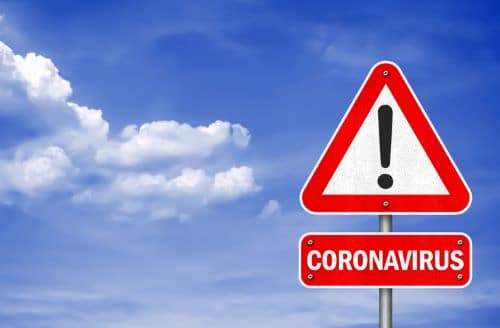Amid all the sickness, death, and job losses, there were two pieces of information that provided some comfort in the early days of the coronavirus.
Initial statistics showed that serious cases were largely confined to people over 65. Younger people, it seemed, had little risk.
And if you did get COVID-19, once you recovered, it seemed your life would go on as normal. The disease was thought to have few, if any, lasting effects. In fact, you might be better off after getting it because you would have immunity.
Now, new research shows that these “silver linings” may not exist.
First, let’s look at the new findings regarding younger people and coronavirus.
Data from the Centers for Disease Control and Prevention show that the gap is narrowing between the number of older and younger adults hospitalized for the disease.
From mid-April to late June, there was a 139% increase in hospitalizations for older adults. Among younger adults, there was a 299% increase.[1]
Researchers from UCSF Benioff Children’s Hospitals analyzed health data from 8,400 adults under 25. They found that 33% of young men and 30% of young women had issues that made them “medically vulnerable” to severe COVID-19.[2]
As in older people, certain health problems put young people at higher risk. They include asthma, obesity, diabetes, and heart, immune, and liver conditions.
But smoking/vaping is by far the biggest coronavirus risk factor among young people. A young adult with coronavirus has a 16% chance of getting seriously ill. If they smoke, the chances nearly double to 31%.
Dr. Timothy Brewer is professor of epidemiology at UCLA. He believes many young people believe they have little risk.
“As more data came out about hospitalizations and infection rates, we learned that was not the case,” he said.[3]
A 30-year-old Texas man is one tragic example. He died after attending a “COVID party.” These are parties at which young people actually try to catch coronavirus.
Just before dying, the man reportedly told his nurse, “I think I made a mistake. I thought this was a hoax, but it’s not.”
In Alabama, there were reports of students getting together to see who could get infected first, with a cash prize for the “winner.” The University of Alabama issued a warning against the foolish behavior.[4]
‘We Can’t Assume Someone Who Has COVID-19 Can’t Get It Again’
Another early coronavirus assumption—that it has no permanent effects—is also proving to be false.
A new study indicates that COVID-19 may cause lasting heart damage in more than half of patients.
Researchers from the University of Edinburgh looked at 1,216 confirmed or suspected COVID-19 cases. They gave the patients echocardiograms. Fifty-five percent had heart abnormalities. One in seven were severe.
Professor Marc Dweck was a study co-author.
“We were surprised to see so many patients with damage to their heart with COVID-19 and so many patients with severe dysfunction,” he said. [5]
A new U.K. study shows that post-COVID immunity may also be a myth.
Researchers checked blood samples of COVID-19 patients for antibodies. They found that immune response to coronavirus begins to fade after just 20 to 30 days.[6]
The length of time you remain immune to the virus depends on how severe your illness is. The sicker you are, the longer your immunity. But even in patients who come close to death, this is “still only a matter of months,” said Stephen Griffins. He’s an associate professor in the University of Leeds School of Medicine.
The research backs up a Spanish government study. It found that immunity drops off after just a few weeks.[7]
Viruses with short-lived immunity are not unusual. The common cold is an example. We can catch a cold just a short time after recovering from one.
Dr. Mala Maini is professor of viral immunology the University College London. He said “we can’t assume someone who has had COVID-19 can’t get it again.”
Shortened immunity may also mean that vaccines won’t provide lasting protection.
As the pandemic continues, it’s looking more serious for EVERYBODY, not just the elderly. That’s why you need to do all you can to avoid catching coronavirus no matter your age. Independent Healing’s Coronavirus Pandemic Guide can help.
Discover the single best supplement for stronger immunity… The fruit extract that helps 93% of people with respiratory viruses get better in just two days… And the germ hotspot that most of us forget to sanitize.
You’ll get all this and more in our comprehensive guide to staying healthy during the pandemic. Go HERE.
Related Articles
9 Coronavirus Symptoms You Should Watch For
Coronavirus: What You Need to Know About Exercising With a Mask
What’s the Coronavirus Risk of Going to a Football Game?
Like this Article? Forward this article here or Share on Facebook.
[1]https://www.eurekalert.org/pub_releases/2020-07/uoc–1i3071020.php
[2]https://www.jahonline.org/article/S1054-139X(20)30338-4/fulltext
[3]https://www.theguardian.com/us-news/2020/apr/01/coronavirus-young-americans-covid-19
[4]https://abc3340.com/news/local/university-of-alabama-responds-to-covid-parties-being-thrown-in-tuscaloosa
[5]https://www.newsweek.com/scans-reveal-heart-damage-over-half-covid-19-patients-study-1517293
[6]https://www.medrxiv.org/content/10.1101/2020.07.09.20148429v1.full.pdf
[7]https://edition.cnn.com/world/live-news/coronavirus-pandemic-07-06-20-intl/h_72de9291960bd14c6479ef417741320d

